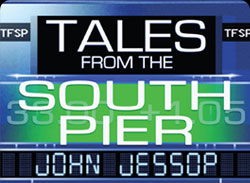Sometimes I think this country is
determined to take leave of its senses.
Actually I’m starting to think that most of the time.
Yesterday, policemen approached
two newsstands close by the central criminal court, the Old Bailey, because the
vendors were displaying the latest edition of Private Eye, the satirical magazine. The potential ‘offence’ in the minds of the
police was that the magazine, in depicting on its cover Rebekah Brooks, the
former editor of the News of the World newspaper (shut down by Rupert
Murdoch in the wake of the phone-hacking scandal) might represent contempt of
court by prejudicing the trial of Brooks, and others, on various charges related
to the scandal. In case you’re
wondering, the magazine cover is a photograph of Brooks, accompanied by the
caption “Horror Witch Costume Withdrawn from Shops”. This, the police felt, might prejudice the
jurors.
Even the judge was moved to
admonish jury members to ignore the cover, which he described as “a joke in
particularly bad taste”. That is as it may
be, but he might bear in mind that the whole point of Private Eye, as it has been since it was founded in 1961, is
tasteless scurrility. (Personally I find
Private Eye a tad juvenile these
days, far less amusing than it used to be, and far less acidulous, but that’s
neither here nor there.)
This story emerged on the same
day that representatives of the publishing industry failed to secure an
injunction to stay the government’s attempt to set up a Royal Charter to
regulate the press. Government ministers
on the Privy Council, whose names have been withheld from the public, will
today advise the Queen to grant the charter, which would then be enshrined in
law. The Council’s recommendation,
debated in secret, stems from the recent Leveson Inquiry into alleged criminal
offences by tabloid journalists, including Brooks.
Last week, the Prime Minister,
David Cameron, criticised The Guardian
newspaper for publishing some of the data leaked from the NSA files and issued
a veiled threat. It would be his
preference, Cameron said, to approach the newspapers about their ‘social
responsibility’ rather than resort to the courts. But it would be difficult to avoid acting if newspapers declined to heed government
advice. (The italics are mine.)
Britain is proud of its tradition
of a free press. It seems to me that the
tradition is in imminent danger of being wiped out. If Cameron’s demand that the press “heed
government advice” isn’t a threat, I’m not sure know what it is. It certainly sounds like a threat.
All these stories have been relegated
by most newspapers to the inside pages.
There are two reasons for this, I imagine, though both are
arguable. One is that the public no
longer gives a fig about the debate on press freedom (a majority probably in
favour of some kind of curtailment). The
other is that the newspapers are trying to keep a low profile.
The Royal Charter – about which
I’ve had nothing to say of late – is a thoroughly bad idea. The publishers of newspapers and magazines
are almost unanimously against it; the government is enthusiastically for
it. Surely a result that is being
imposed despite the antipathy of the organisations that will be affected by it
is bad policy and bad politics. It’s bad
in every respect.
Journalists have undoubtedly
behaved badly of late. Some always
will. The recourse against them lies in
existing laws. Brooks and the others are
on trial for criminal acts; that alone should be sufficient public retribution
for their alleged offences.
Many have asserted that a free
press is, like pregnancy, an absolute.
I’m happy to join the opinion. Britain either has a free press or
a restricted press. Few countries have a free press, many have a controlled
press. Look up the respective lists, and
I’m certain that you’ll decide without much hesitation those countries in which
you’d prefer to live.
Freedom of expression should not
to be left to the whim of the government of the day, or to any of its
bureaucratic contrivances; least of all those conceived in panic and created in
secrecy.
This witch-hunt taking place
outside the courts is shameful. The
celebrities who encouraged it are shameless.
Hugh Grant – one day perhaps to be ennobled Lord Grant of Beverley Hills – will never be regarded as one of
the great actors of his day, but he may go down as one of the great saboteurs
of British democracy.
Publishers have every right to
ignore the new restraints. I trust that
they will. “Publish and be damned”
sounds to me like the perfect operating dictum.


Be First to Comment